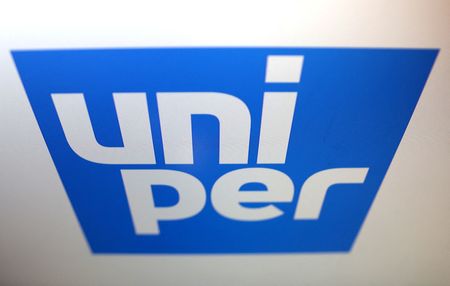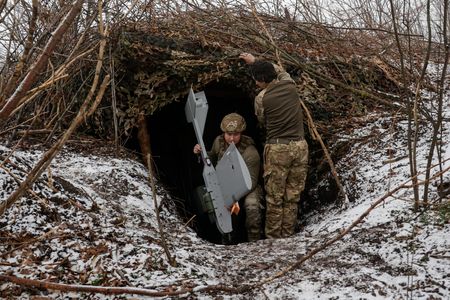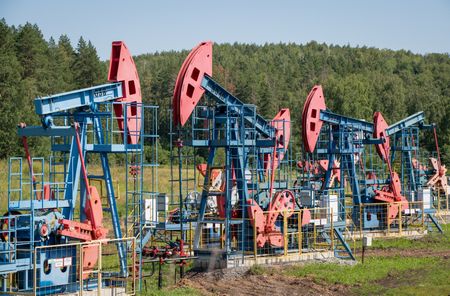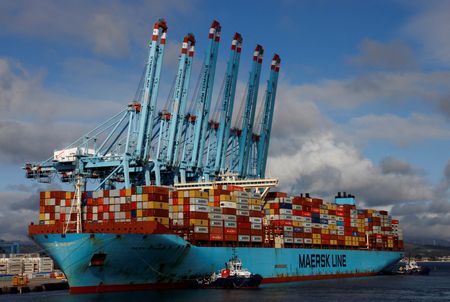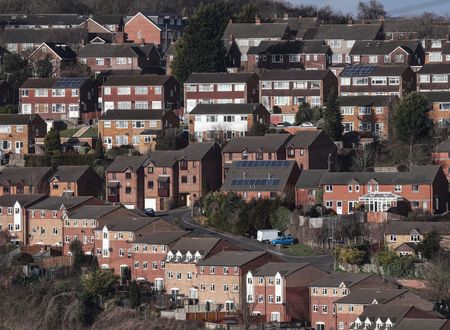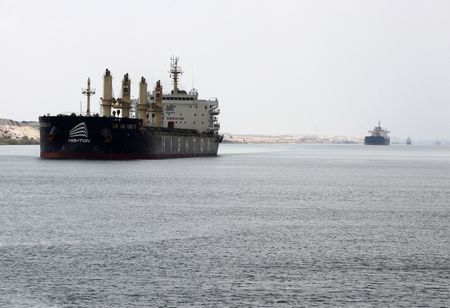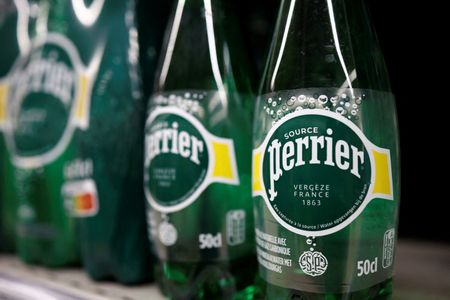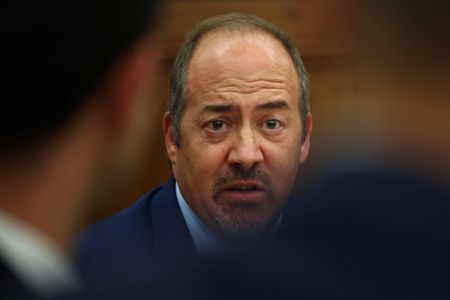By Christoph Steitz, Vera Eckert
FRANKFURT (Reuters) -German state-owned utility Uniper warned on Tuesday that it was likely to slow down a planned 8 billion-euro ($8.7 billion) investment in cleaner fuels amid slower than expected demand for hydrogen from industry.
The comments reflect growing scepticism among German companies about whether long-standing government plans to rely more heavily on hydrogen to cut emissions are realistic and affordable.
Uniper, which was bailed out by Berlin during Europe’s energy crisis in 2022, recently reviewed its strategy that targets 8 billion euros in investments through 2030 with a focus on hydrogen and biomethane, finance chief Jutta Doenges said.
“We are now less optimistic about the timeline regarding the implementation of a green hydrogen economy,” she told analysts after presenting an expected two-thirds drop in nine-month core profit.
“We observe a mood of caution among potential B2B (business to business) customers to make a commitment for significant green hydrogen or ammonia supply offtake volumes.”
So-called green hydrogen is produced using renewable power, and Germany’s government has been betting on this fuel to help its economy become climate-neutral by 2045.
When asked about the impact of Uniper’s slowdown in its hydrogen plan on the country’s overall decarbonization ambitions, Germany’s economy ministry acknowledged that ramping up a completely new hydrogen market is fraught with uncertainties.
The ministry said it was, however, important to create the necessary framework to promote the ramp-up, highlighting recent progress in establishing necessary infrastructure, regulatory framework and funding programs, including the country’s core hydrogen network plans, officially approved last month.
“It is clear that we still have a lot of work ahead of us to further advance the ramp-up of the hydrogen economy,” a spokesperson for the ministry said on Tuesday.
Doenges said the ramp-up of hydrogen power plants was expected to materialise more slowly than assumed 18 months ago, adding Uniper would “potentially move a little bit slower” on its strategy as a result.
“We are adjusting the pace of our transformation,” she said.
Uniper is preparing for a return to the stock market after Berlin acquired a 99.12% stake as part of its 13.5 billion-euro rescue, which was needed after Russian gas supplier Gazprom curbed and later stopped deliveries.
As part of efforts to smoothen the process, Uniper has begun repaying Germany, saying on Tuesday it had transferred 530 million euros to the government in September.
The company said a separate chunk of provisions was now valued at just under 2.5 billion euros and would likely be transferred in early 2025, while the final amount could still change.
($1 = 0.9181 euro)
(Reporting by Christoph Steitz and Vera Eckert; Additional reporting by Tom Kaeckenhoff in Duesseldorf and Riham Alkousaa in Berlin; Editing by Miranda Murray, Mark Potter and Matthew Lewis)

